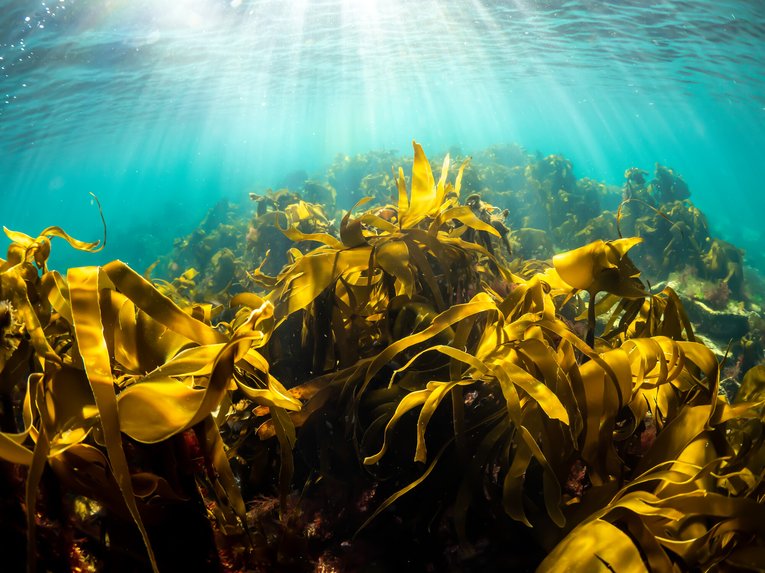
Positive ocean news: January 2023 edition
Here's a roundup of the latest positive ocean stories from the past month, including protected Irish seas, penguins spotted from space, and a solution to microplastic pollution.
Additional 3 million hectares of Irish Seas to be protected

Credit: National Geographic
Ireland has announced the designation of two new marine protected areas, spanning seven million hectares which will increase the country’s MPA coverage from 2.1% to 8.3%.
The MPAs are home to a diverse range of marine life, such as reefs, corals, fish, whales, dolphins, and rays, which will now be protected and given the best opportunity to thrive.
The move comes as the Irish Government approved new legislation which enables the country to designate nationally based MPAs, which will help Ireland to meet it commitment to protect 30% of its seas by 2030.
Read the full article on the Oceanographic website
Welsh ocean literacy project awarded major funding

Credit: Neil Mark Thomas/unsplash

The Marine Conservation Society has received £244,000 from the Nature Networks Fund to undertake an Ocean Literacy project in North East Wales.
The project, called Hiraeth Yn Y Môr, aims to grow ocean literacy through upskilling and empowering those in local communities and will begin in April 2023. Embedding the Well-being of Future Generations Act, the project will evaluate the impact of the ocean on people’s mental health and wellbeing, and the sustainability of one of our largest natural assets - the ocean.
Nature Networks Fund is being delivered by Heritage Lottery Fund on behalf of Welsh Government.
New colony of 500 penguins discovered from space

Credit: Jason Row/unsplash
Satellite imagery revealed a colony of 500 emperor penguins living on the coast of West Antarctica, bringing the total number of colonies to 66.
The recent discovery was a welcome one, with the species facing threat as Antarctica continues to warm and the sea ice which the penguins call ‘home’ melts.
Scientists from the British Antarctic Survey have been analysing satellite imagery to identify new penguin colonies for 15 years, and the technology has helped identify half of the known colonies.
Whilst 500 penguins sounds like an impressive amount, this is in fact a small colony in terms of emperor penguins, which typically live in colonies of 5,000-10,000.
Read the full article on the Sky News website
Argentina’s largest carbon sinks gets permanent protection

Credit: Alison Moore
The Argentinian Government has approved a law which will permanently protect the Mitre Peninsula, which includes 186,000 hectares of sea. The region is home to over 30% of the country’s kelp forests, which capture and store a vast amount of carbon dioxide from the atmosphere, as well as welcoming large populations of marine animals.
Some areas of the Peninsula will be protected from all forms of human activity, including tourism, and over a quarter of the marine protected area will also be a no-take zone – meaning that all extractive activities such as drilling, mining, and fishing are prohibited.
Read the full article on the Mongabay website
Advances in removing microplastics from water

Credit: Dotted Yeti
Australian researchers have discovered a way to remove microplastics from water using magnets.
The process, which takes under an hour, uses a powdered adsorbent which attracts microplastics when added to water. As the absorbent is made with nanomaterials containing iron, magnets can then be used to easily separate it, along with the pollutants it attracts, from water.
This method can remove microplastics 1,000 times smaller than those wastewater treatment plants can detect. Made from recycled waste and reusable, this is good news for the ocean, environment, and circular economy.
Meanwhile, another method which can remove over 99.9% of microplastics and other pollutants from water was discovered in South Korea.
The technique involves a filter made from a substance called covalent triazene framework (CTF) and takes only ten seconds. Due to its large surface area and porous nature, CTF has plenty of space to store molecules it captures from the water. The material can also be recycled multiple times without losing its effectiveness, making it more economically efficient.
Read the full article on Interesting Engineering
Indonesia plans marine protected areas for Maluku Islands

Credit: Jody A. Khomaro/unsplash
Following its designation of five marine protected areas last year, Indonesia has announced plans to designate further marine protected areas (MPAs) on the Maluku Islands – an area renowned for its corals and reef fish.
Funding has already been secured for an MPA in the northern waters of the Buru district, with plans to designate southern waters as a conservation zone, which will help Indonesia reach its target of conserving 10% of its territorial resources by 2030.
In efforts to preserve natural resources and protect marine life in the areas, only traditional and small-scale fishers using sustainable fishing equipment will be permitted to operate in the MPAs.
Read the full article on the Mongabay website

